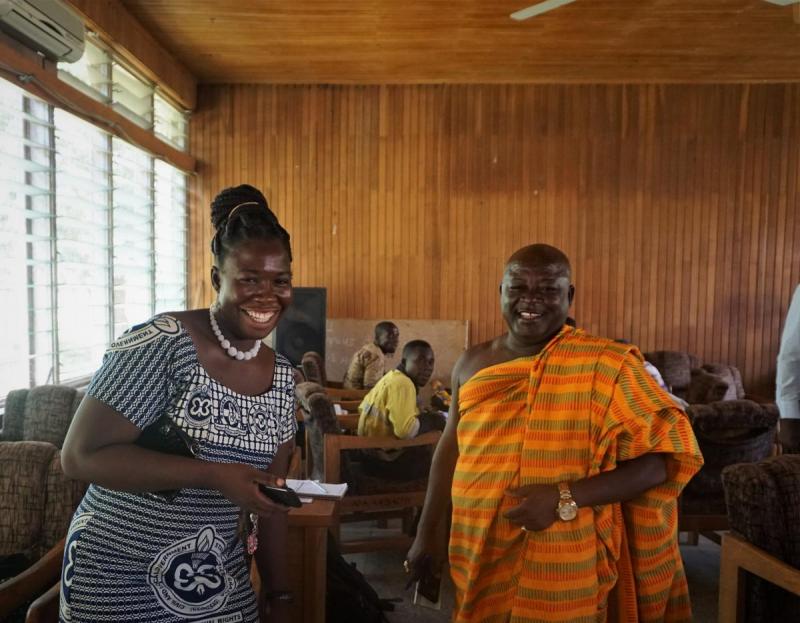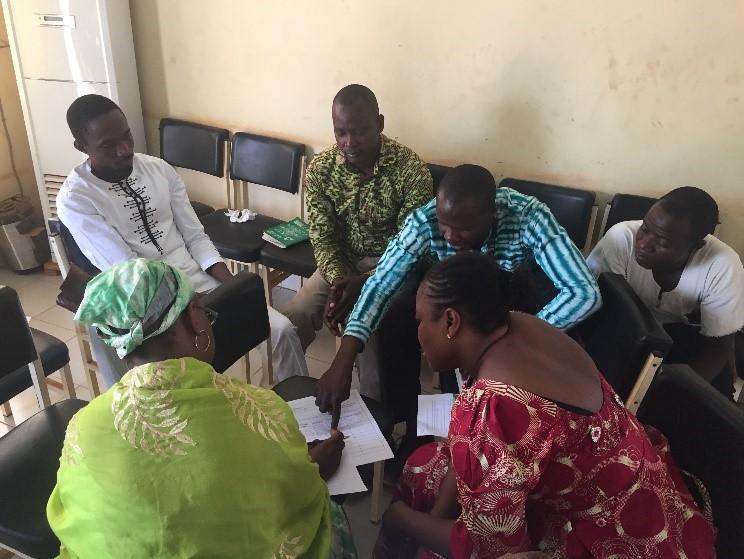A tool to ensure we leave no one behind while working to achieve SDG 6.
Published on: 08/07/2019
Gender disparities related to poor water, sanitation and hygiene (WASH) services are well known. Failure in WASH often means that women are left to "act as infrastructure, covering for a piece of pipe" – as Isha Ray, an economist specializing in water and development at the University of California in Berkeley says in a recent article. However, there is a lack of widely used quantitative indicators to monitor empowerment in the WASH sector.
The Empowerment in WASH Index (EWI) tool – piloted in our partner districts in Burkina Faso and Ghana - aims to close the evidence gap on the links between WASH interventions and the empowerment and well-being of people who receive new services. Challenges identified by EWI go beyond infrastructure-oriented solutions and address more structural (e.g. social norms, governance systems) changes. The tool was developed by the Stockholm Environment Institute (SEI) and Queens University, in collaboration with IRC and with input from local WASH authorities, NGOs, traditional leaders, women's and youth groups.
EWI findings complement the District WASH Master Plans of Banfora, Burkina Faso and Asutifi North, Ghana with comprehensive gender analysis. The master plans represent the commitment of local authorities and show the value of collective action in realising universal access to safe and sustainable WASH services for the entire population of the districts. But to really leave no one behind while working to achieve SDG 6, we need to assess, collect and monitor the right data with the right tools. Including the gender dimension of WASH interventions in assessment and monitoring makes it possible to prioritise and target priority areas.

SEI and Queens University researchers, Sarah Dickin and Elijah Bisung conducted the research for EWI in 2018 and the dissemination workshops took place in April and May, 2019. District and national level learning alliances – a form of collective action connecting a diverse group of stakeholders with shared interests – provided the venues for discussing the findings and for coming up with recommendations for policy makers, WASH practitioners, civil society and more.
The low representation of women at the learning alliance meeting at the Asutifi North District Assembly only emphasised the importance of acting on the empowerment challenges identified by the tool. However, on a positive note, Emmanuel Marfo, monitoring, evaluation and learning specialist of GADeF, mentioned that it was the first time, he saw an organisation representing persons with disabilities participating in a WASH related Assembly meeting.
In Accra, Ghana the learning alliance meeting prompted intense discussions on ways to address traditional household structures, such as implementing paternity leave and quota systems that support leadership positions for women.
The district meeting in Banfora, Burkina Faso also recommended increasing the number of women in leadership positions in water user associations, and in local government.

More recommendations are formulated in the policy briefs about the two cases in Burkina Faso and Ghana. The briefs also include an explanation of the EWI tool and reflect on the key findings in the districts.
There is also more in-depth information to follow about the tool in the form of technical papers and engaging videos including reflections from participants of the dissemination workshops. So, keep an eye on our website for more EWI news to come.
Have we piqued your interest? Questions and inquiries for more information are welcome. Get in touch with: